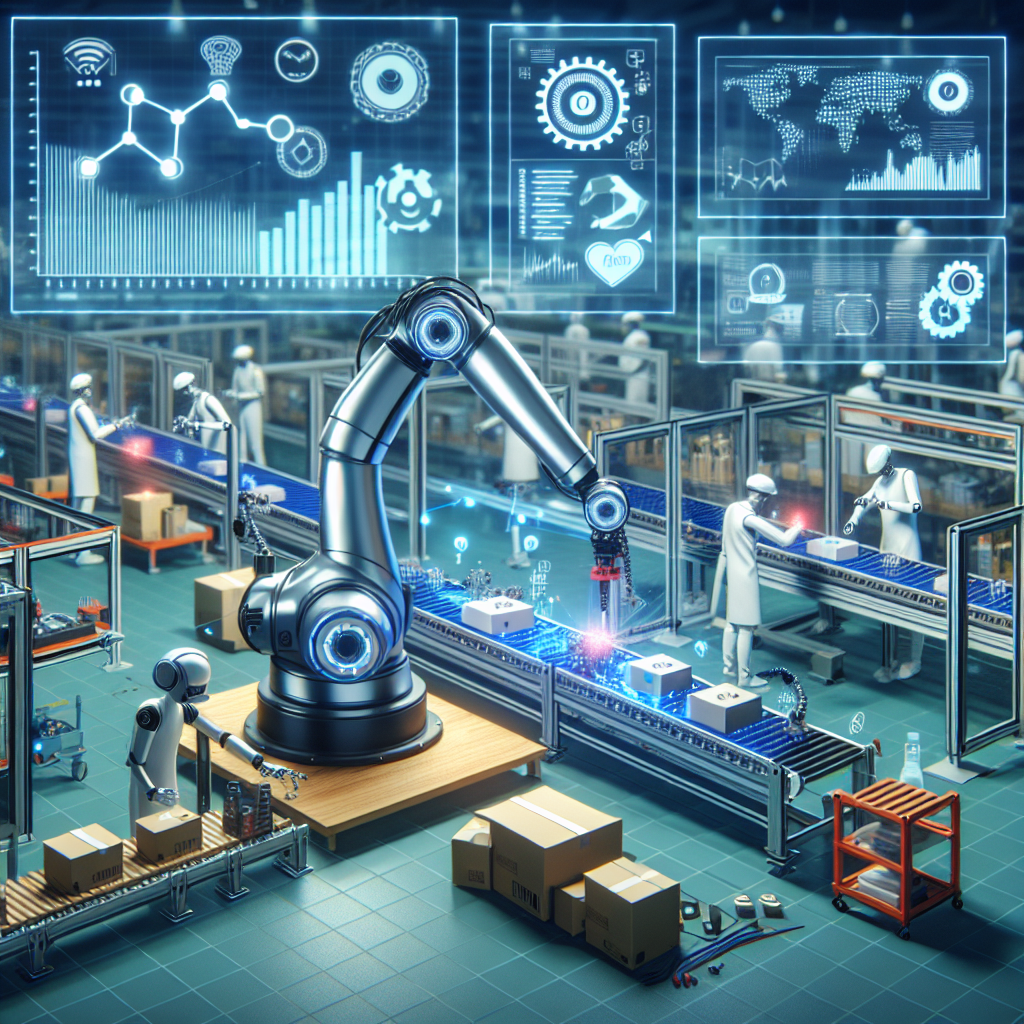Artificial Intelligence (AI) is revolutionizing the manufacturing industry by improving quality control processes. With the ability to analyze vast amounts of data quickly and accurately, AI technologies can identify defects and anomalies in products with greater efficiency than traditional methods. This has led to improved product quality, reduced waste, and increased customer satisfaction for manufacturers.
One of the key areas where AI is making a significant impact in manufacturing is in quality control. By implementing AI-powered systems, manufacturers can automate the inspection process, detect defects at an early stage, and make real-time adjustments to production processes. This not only improves the quality of the end products but also helps manufacturers reduce costs and increase efficiency.
AI Deployment in Quality Control
AI technologies, such as machine learning and computer vision, are being used in manufacturing to enhance quality control processes. Machine learning algorithms can be trained to recognize patterns and anomalies in data, allowing manufacturers to detect defects in products with high accuracy. Computer vision systems, on the other hand, use cameras and sensors to capture images of products and analyze them for defects.
One of the most common applications of AI in quality control is in visual inspection. Traditional methods of visual inspection are time-consuming and error-prone, as human inspectors may miss defects or make subjective judgments. AI-powered visual inspection systems, on the other hand, can analyze images of products with high precision and speed, ensuring that defects are detected accurately.
Another area where AI is being deployed in quality control is in predictive maintenance. By analyzing data from sensors and equipment, AI systems can predict when machines are likely to fail and alert maintenance teams to take preventive action. This helps manufacturers avoid costly downtime and ensures that production processes run smoothly.
AI technologies are also being used to optimize production processes and improve product design. By analyzing data from various sources, including sensors, machines, and customer feedback, AI systems can identify areas for improvement and suggest changes to production processes or product designs. This helps manufacturers produce higher-quality products that meet customer expectations.
Challenges and Opportunities
While AI deployment in manufacturing offers numerous benefits, there are also challenges that need to be addressed. One of the main challenges is the lack of skilled workforce to implement and maintain AI systems. Manufacturers need to invest in training their employees to use AI technologies effectively and ensure that they have the necessary skills to operate and maintain these systems.
Another challenge is the cost of implementing AI technologies in manufacturing. While AI systems can help manufacturers reduce costs in the long run, the initial investment required to deploy these technologies can be significant. Manufacturers need to carefully assess the costs and benefits of AI deployment and develop a clear strategy for implementation.
Despite these challenges, AI deployment in manufacturing also presents numerous opportunities for manufacturers. By harnessing the power of AI technologies, manufacturers can improve product quality, reduce waste, and increase efficiency. AI systems can also help manufacturers gain a competitive edge in the market by producing higher-quality products at lower costs.
FAQs
Q: How can AI technologies improve quality control in manufacturing?
A: AI technologies, such as machine learning and computer vision, can be used to automate the inspection process, detect defects in products, and make real-time adjustments to production processes. This helps manufacturers improve product quality, reduce waste, and increase efficiency.
Q: What are some common applications of AI in quality control?
A: Some common applications of AI in quality control include visual inspection, predictive maintenance, and process optimization. AI-powered systems can analyze images of products for defects, predict when machines are likely to fail, and suggest changes to production processes or product designs.
Q: What are the challenges of implementing AI technologies in manufacturing?
A: Some of the challenges of implementing AI technologies in manufacturing include the lack of skilled workforce, the high cost of deployment, and the need to develop a clear strategy for implementation. Manufacturers need to invest in training their employees and carefully assess the costs and benefits of AI deployment.
Q: What are the opportunities of deploying AI technologies in manufacturing?
A: By deploying AI technologies in manufacturing, manufacturers can improve product quality, reduce waste, and increase efficiency. AI systems can also help manufacturers gain a competitive edge in the market by producing higher-quality products at lower costs.

